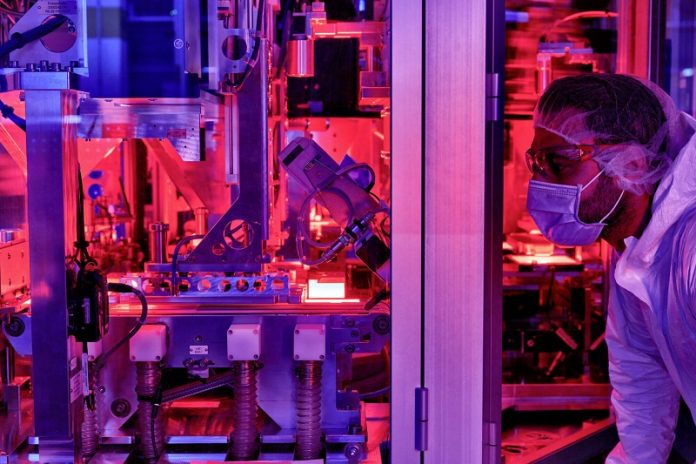
Electric cars are becoming more popular every year, but one of the biggest challenges holding back the technology is the battery.
Drivers want batteries that are lighter, safer, cheaper, and able to last longer between charges.
While today’s electric cars rely on lithium-ion batteries, researchers have long hoped that lithium-sulfur (Li-S) batteries could take over.
These next-generation batteries can store much more energy, charge faster, and cost less to produce. They are also considered safer than lithium-ion batteries.
So why aren’t they already powering our cars, planes, and ships? The problem is that lithium-sulfur batteries wear out quickly.
After only a couple of hundred charging cycles, they lose capacity and fail. The culprit is something scientists call the “shuttle effect.”
During charging and discharging, unwanted chemical byproducts called lithium polysulfides start moving back and forth between the battery’s electrodes.
This constant shuttling causes damage inside the battery, making it unstable and short-lived.
A research team at the Norwegian University of Science and Technology (NTNU) may have found the solution. Led by postdoctoral fellow Önder Tekinalp, the group has developed an ultra-thin coating that acts as a smart filter.
They call the invention HiSep-II, and they’ve patented it. Instead of trying to fix the chemistry in the battery’s cathode or electrolyte—the approach taken by most other researchers—the NTNU team focused on the battery’s separator.
The separator is the barrier inside the battery that keeps the electrodes apart and prevents short circuits. By coating this barrier with HiSep-II, the team created a filter that blocks the harmful lithium polysulfides while allowing the useful lithium ions to pass freely.
In laboratory tests, this tiny coating made a huge difference. Lithium-sulfur batteries equipped with HiSep-II lasted up to 1,000 charge cycles, compared to just 200 cycles for unprotected batteries.
That means the new batteries could last five times longer than before. For electric cars, the impact could be enormous.
The researchers estimate that an 800-volt battery pack could be made more than 200 kilograms lighter if designed with this technology. A lighter battery means greater driving range, better efficiency, and improved performance.
The benefits don’t stop with cars. Because lithium-sulfur batteries are cheap to produce—sulfur is abundant and inexpensive—this new filter could also make them suitable for aviation, drones, space travel, and even maritime shipping. In addition, the technology is environmentally friendly and designed to be scaled up easily for mass production.
The HiSep-II team is now working with NTNU Technology Transfer (TTO) to bring the coating to market. Kristina Nydal, a business developer at TTO, says the goal is to license the technology to industrial partners who can help with large-scale testing and production. Before that happens, the coating must be tested independently to prove its long-term stability and safety.
Tekinalp believes this breakthrough finally makes lithium-sulfur batteries a serious alternative to today’s lithium-ion technology. “The HiSep-II coating tackles the shuttle effect directly,” he explained. “It’s a simpler, more scalable solution that could help unlock the full potential of lithium-sulfur batteries.”
If successful, this ultra-thin smart filter could pave the way for lighter, cheaper, and much longer-lasting batteries—transforming not just electric vehicles, but the entire future of clean energy storage.



